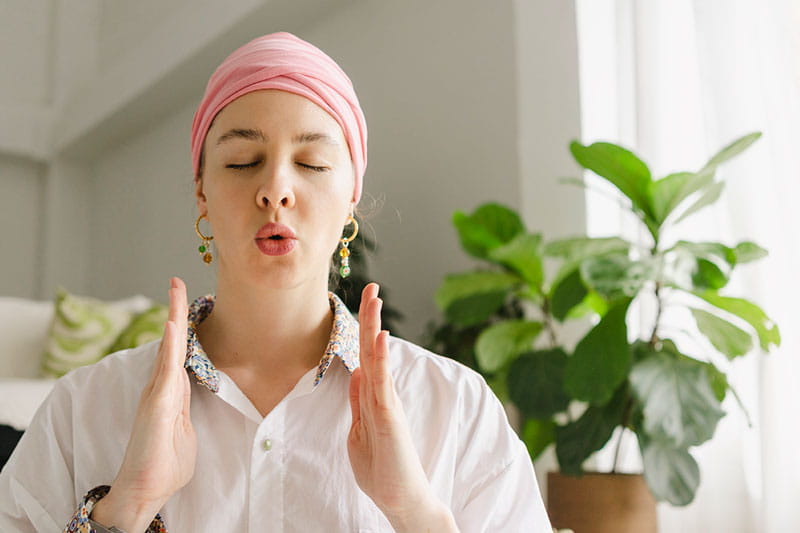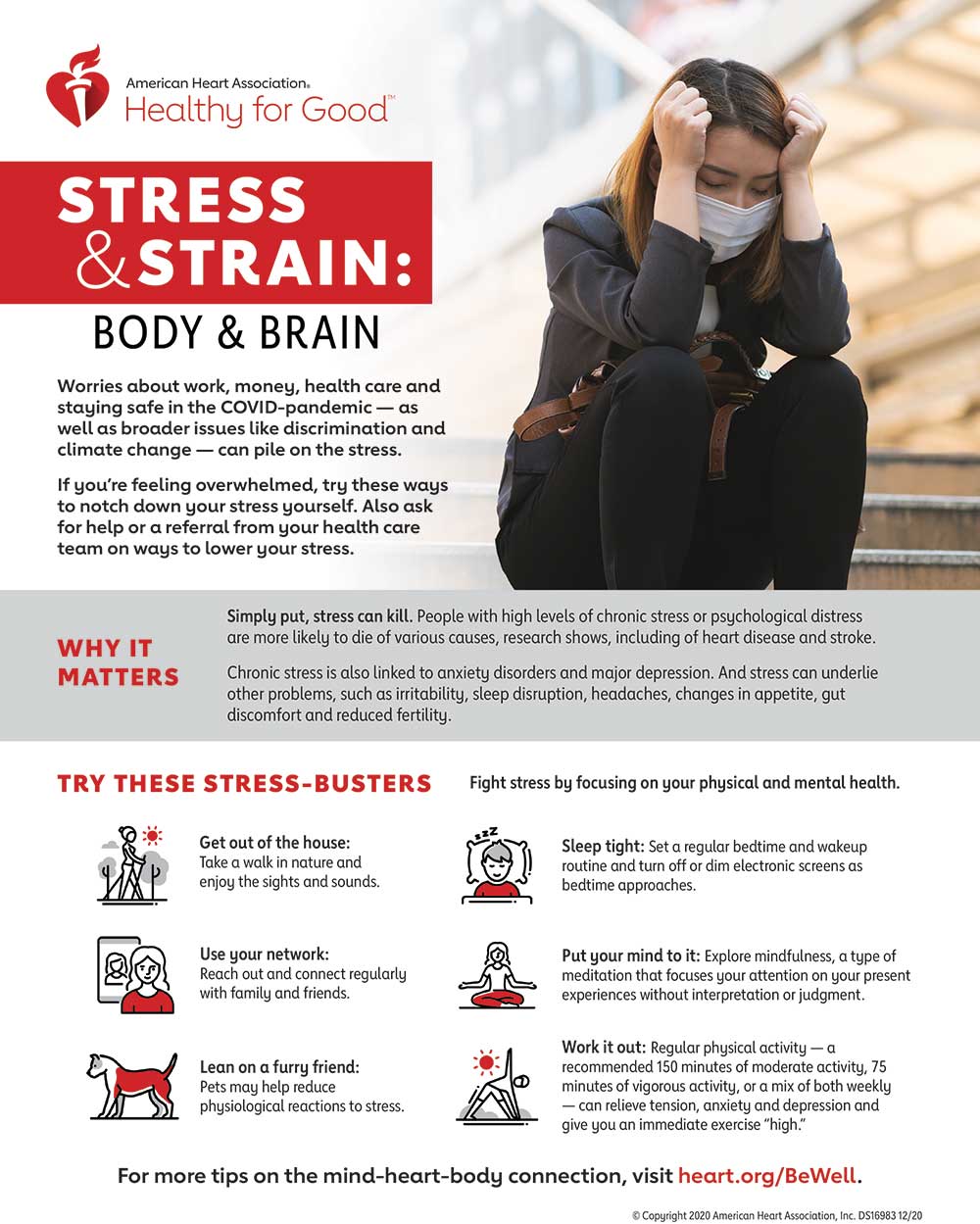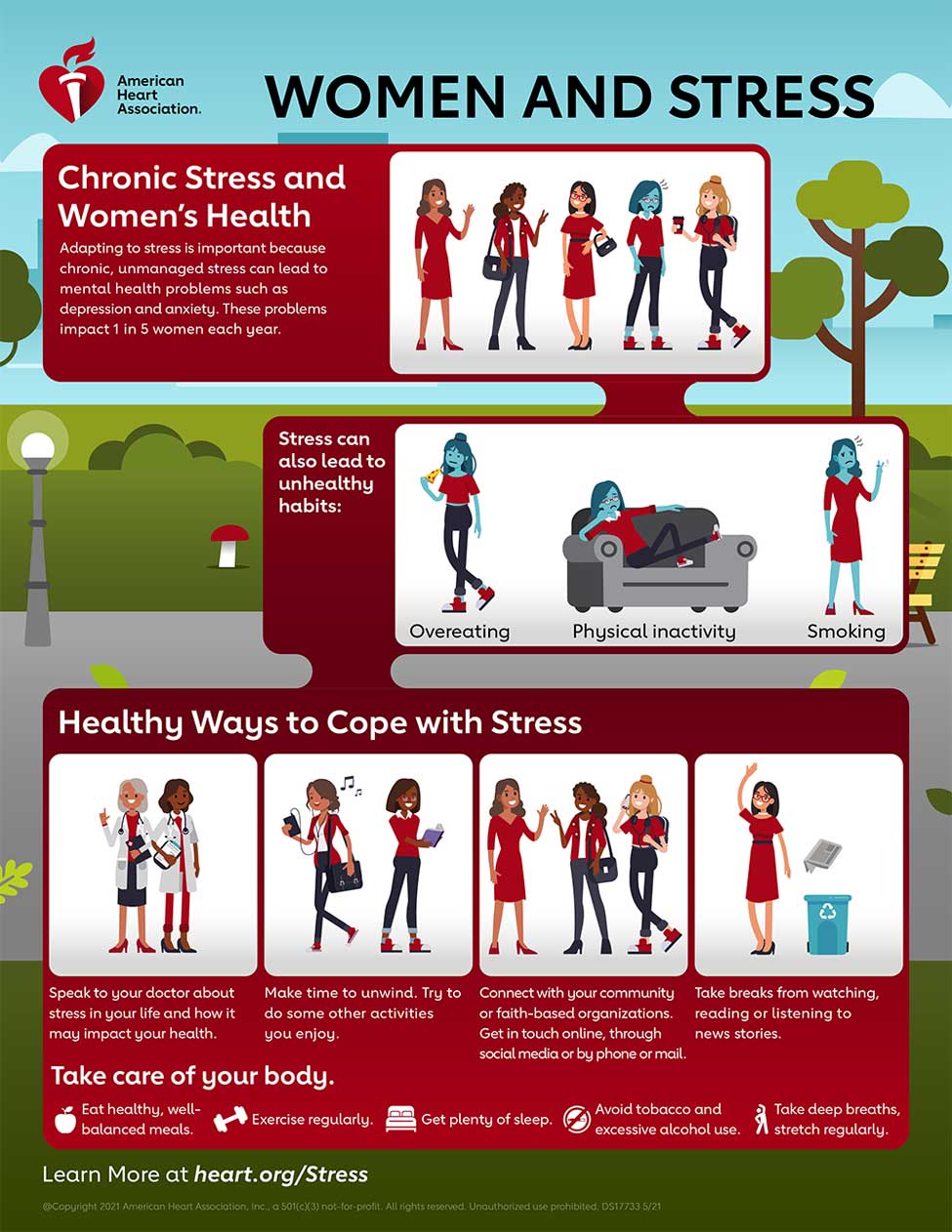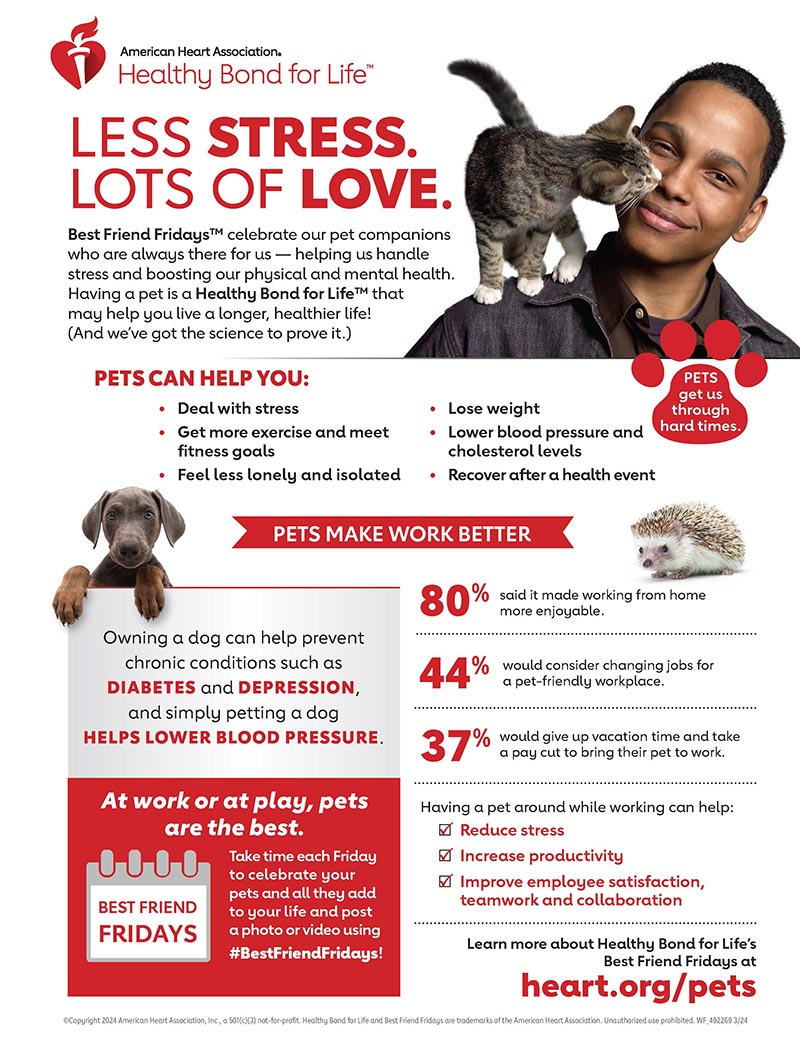 American Heart Association
American Heart Association Stress Management

Manage Stress and Manage Your Health
Questions and Answers: Tips to Stress Less
Everyone feels and reacts to stress in different ways. How much stress you experience and how you react to it can lead to a wide variety of health problems.
Everyone experiences stress at one time or another, and stress affects all of us in different ways. But this much is true for everyone: Regular exercise reduces the harmful effects of stress.
Getting out of our own heads and connecting with the world around us can be an effective stress-buster.
Yes, especially if your “stressed out” feeling remains constant, or chronic. Chronic stress can affect your physical and mental health. It can weaken your immune system and cause physical symptoms too.
The American Heart Association presents, “Notes to My Younger Self” in collaboration with Variety Content Studio.
Amber Riley
Amber Riley looks back at pivotal stages in her life and how she learned to manage chronic stress throughout her career.
Hayley Kiyoko
Hayley Kiyoko shares how she deals with anxiety and stress throughout her career and her personal life.Melissa Fumero
Melissa Fumero discusses the importance of self-care, coping mechanisms, and the significance of seeking help when needed.Karamo Brown
Karamo Brown reflects on how he’s managed stress throughout his life, on and off camera.Josh Peck
Josh Peck opens up about his personal journey with mental health, stress, and the art of managing it all while being in the spotlight.Alyssa Milano
Stress can come in all shapes and sizes. Hear how Alyssa Milano has learned to deal with it.Deep Breathing: Benefits and Techniques
Your breathing directly affects your nervous and cardiovascular systems. Taking slow, deep breaths can trigger positive responses in your body, including:
- Stabilizing or lowering blood pressure
- Creating and maintaining a sense of calm
- Lessening stress for improved mental health
- Reducing anxiety and depression symptom
4-7-8 Breathing
Inhale through your notes for four counts, then hold that breath for seven counts. Then exhale through your mouth (slowly) for eight counts.
Note: If you are trying these deep breathing techniques for the first time, it’s not recommended to practice these approaches for more than three to five cycles at once. Stop any technique if you feel dizzy or light-headed.
Pursed-lip Breathing
Inhale, then exhale through your mouth with pursed lips at a rate two to four times slower than your inhale.
Note: If you are trying these deep breathing techniques for the first time, it’s not recommended to practice these approaches for more than three to five cycles at once. Stop any technique if you feel dizzy or light-headed.
Box Breathing
Inhale through your nose for four counts, then hold your breath for four more. Next, exhale for four counts, then wait for four counts before inhaling and restarting the 4 x 4 x 4 x 4 sequence.
Note: If you are trying these deep breathing techniques for the first time, it’s not recommended to practice these approaches for more than three to five cycles at once. Stop any technique if you feel dizzy or light-headed.
Diaphragmatic Breathing
Place both hands on your abdomen, then inhale deeply through your nose. Let your abdomen balloon out, and then exhale through your mouth.
Note: If you are trying these deep breathing techniques for the first time, it’s not recommended to practice these approaches for more than three to five cycles at once. Stop any technique if you feel dizzy or light-headed.
Download our easily shared one-pager on the surprising benefits of deep, controlled breathing. Get the Breathing Brings Benefits (PDF)





Videos to Help You Stress Less


Feel Great by Doing Good
Yes, giving to the American Heart Association can help save lives from heart disease and stroke. It can also make you feel good - and may reduce your stress, too.

Stress Management Tip Sheets



